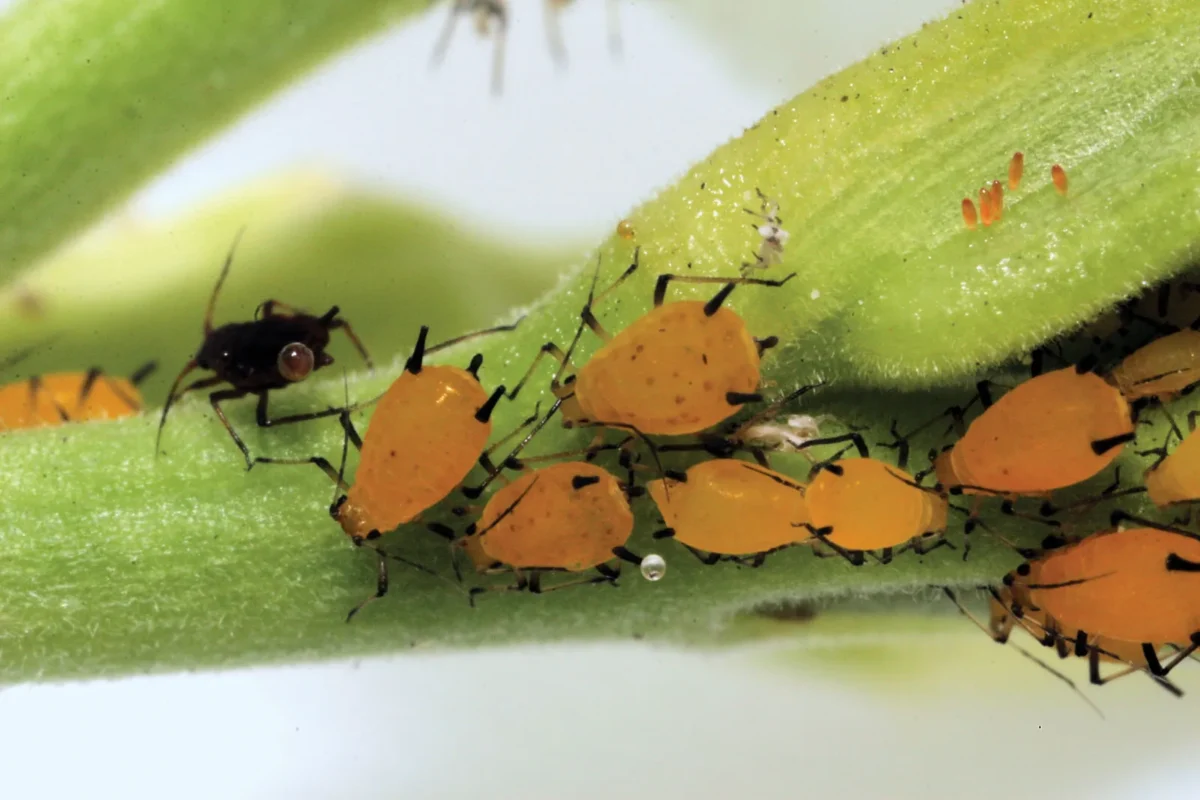Pests
How Do I Get Rid Of Aphids On Plants?
Aphids are small, soft-bodied insects that feed on plant sap, often found in clusters on the undersides of leaves and on tender plant stems. They come in various colors, including green, black, brown, and pink. Aphids can cause significant damage to plants by stunting their growth, causing leaf curl, and transmitting plant diseases. They excrete a sticky substance called honeydew, which can lead to sooty mold growth on plants. Aphid populations can grow rapidly, so early detection and control are crucial for managing these pests in gardens and on indoor plants.
-
Physical Removal: Rinse aphids off plants with a strong stream of water from a hose or spray bottle. For indoor plants, you can gently wipe them off with a damp cloth.
-
Pruning: Trim heavily infested leaves or stems to quickly reduce aphid populations.
-
Natural Predators: Introduce beneficial insects like ladybugs, lacewings, or parasitic wasps into your garden. These natural predators can effectively control aphid populations.
-
Soapy Water Spray: Mix a few drops of mild liquid soap with water and spray directly onto aphids and affected plant areas. The soap dissolves their protective outer layer, causing dehydration. Be sure to rinse the plants with clean water a few hours after application to prevent potential soap damage to the plant.
-
Neem Oil: Apply neem oil, a natural pesticide, according to the product instructions. Neem oil interferes with the aphid’s hormonal system, preventing it from feeding, growing, and reproducing.
-
Essential Oils: Certain essential oils, like peppermint, clove, rosemary, or thyme, can deter aphids when mixed with water and sprayed onto plants. Use sparingly, as essential oils can be strong.
-
Row Covers: For vegetable gardens, using floating row covers can protect plants from aphids while allowing light and water to penetrate.
-
Encourage or Plant Aphid-Repellent Plants: Some plants, like catnip, garlic, chives, and marigolds, can repel aphids. Planting these in or around your garden can help keep aphids at bay.
Always monitor your plants regularly for signs of aphid activity and apply treatments as needed. Early intervention is key to preventing severe infestations and safeguarding the health of your plants.


